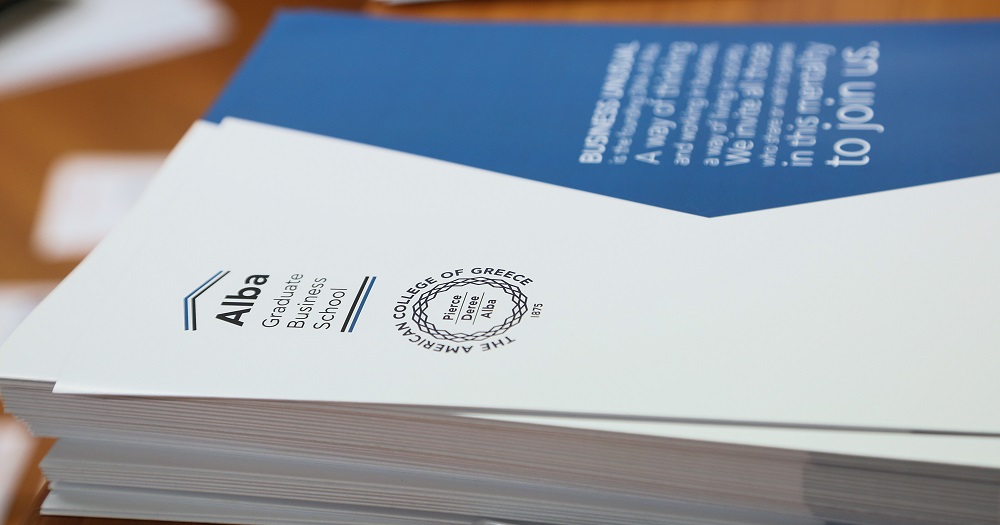The Power of Words
By: Mainemelis Charalampos (Babis), Associate Professor of Organizational Behavior
There is growing frustration in the world with leaders who exhaust themselves (and others) in the reproduction of immaculately arranged but ultimately void strings of ‘blah’. It is often said that leaders “do” rather than “speak”–they produce change rather than stability.
Taking to the extreme, however, this view ends up portraying leaders as mere implementers. Leaders envision, inspire, and mobilize others toward a desirable future and they create a supportive context that enables change. Leaders, however, are rarely executors of organizational or social transformation. Without overlooking the practical necessity of implementation, great leadership taps the subtle art of inspiration.
Leading in times of crisis is challenging precisely because of what leaders cannot do. Today, most organizational leaders cannot alleviate the financial strain of their employees, nor can they single-handedly reverse their workforce’s profound insecurity about the political instability and social turmoil of our world. But leaders can still inspire hope, resilience, and belief.
Inspirational communication is the hallmark of inspirational leadership. It does not require budgets, investments, or elaborate plans, but the willingness to master four principles: Authenticity, caring, courage, and artful conversation.
Authenticity radiates self-awareness and self-esteem. It is the opposite of ignorance and insecurity. Authenticity is not a stylized exposition of our polished “public self” but a confident affirmation of our genuine self in-motion. It is an evolving process whereby we explore our identities, talents, and limitations through transparent social interactions. Leader authenticity triggers inspirational communication, and inspirational communication allows, in turn, leaders to express and rework their most authentic characteristics.
Inspirational communication requires intimate knowledge of the audience a leader wishes to inspire, as well as the creation of common cognitive and emotional ground for the subsequent leader-follower interactions. Leaders who genuinely care about their followers strive to understand and appreciate their moods, needs, and aspirations, a fact which actuates the crafting of powerful channels of inspirational communication.
Courage is often in and of itself inspirational. Consider a meeting where everyone present knows the underlying issue that cast shadows over their relationships, but no one is wiling to address it. The team member who takes the courageous step to express the truth has a good a chance of inspiring and mobilizing others. This is more likely to happen when the courageous team member is the team leader. Inspirational leadership is not about making announcements, hiding behind small talk, or underplaying relational conflicts, but about having the courage to initiate and engage in real and often difficult conversations.
Inspirational communication cannot be boring, conventional, or scripted. Artful conversations inspire us because they are open-ended, fluid, and imaginative. Some leaders trigger artful conversations by calling on their most eloquent traits—charisma, verbal fluency, or the ability to creatively use symbols. Other leaders achieve the same effect by using works of art as transitional objects that trigger and carry the conversation in previously uncharted territories of deep reflection and meaning.
When adversity and uncertainty rule, people grow hungry for great words that can touch and move them. Inspirational communication is an invaluable leadership quality that propels the development of thriving and resilient human communities across cultures and time.
Loaves and Fishes
This is not
the age of information.
This is not
the age of information.
Forget the news,
and the radio,
and the blurred screen.
This is the time
of loaves
and fishes.
People are hungry
and one good word is bread
for a thousand.
David Whyte, The House of Belonging, 1996, Many Rivers Press.




